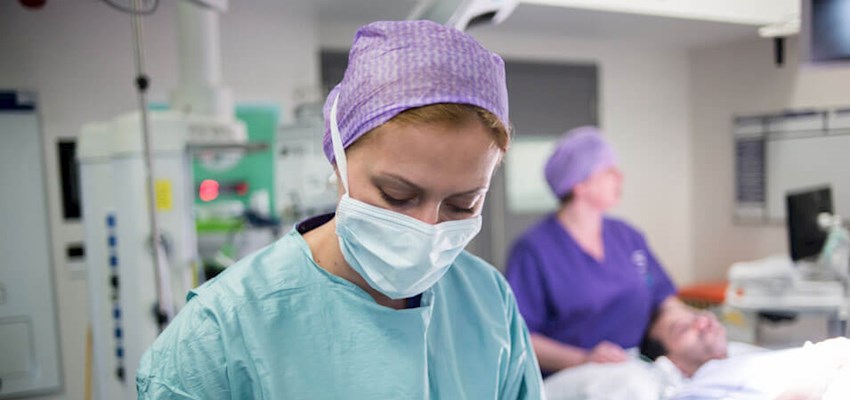Peptic ulcers
Ulcer disease
Peptic ulcers, also known as stomach ulcers, are open sores that develop on the lining of your stomach
About stomach ulcers
Peptic ulcers are breaks or wounds in the lining of the parts of the upper gut that are exposed to stomach acid. They can occur in the stomach (gastric ulcer), the first part of the small intestine (duodenal ulcer) and in the oesophagus (food pipe). About one in ten people in the developed world will have an ulcer at some time in their life.
Need to know
-
Symptoms of peptic ulcers icon plus
Symptoms can vary depending on the severity of your condition, but may include:
- a burning or persistent pain that develops in your stomach (abdomen)
- bleeding from the ulcer that results in blood in your stools
- pain that travels from your stomach up to your neck or through to your back
- indigestion and/or heartburn
- reduced appetite or loss of appetite
- feeling and/or being sick
- burping or feeling bloated after eating certain foods
- over time, weight loss
-
Diagnosis icon plus
The only secure way to diagnose or exclude an ulcer is by gastroscopy. This is a procedure where a thin, flexible tube (endoscope) is used to look inside your food pipe (oesophagus), stomach and the first part of your small intestine. If gastroscopy is not possible your consultant may request a barium meal X-ray to detect an ulcer, but this cannot sample the gut to check for a helicobacter pylori infection (type of bacteria) or stem any bleeding. -
Potential stomach ulcers treatment options icon plus
Treatment will depend on the cause of the ulcer. A helicobacter pylori infection is treated with a combination of antibiotics and an acid suppressing drug. You'll need to come back six weeks after treatment to confirm its success with either a stool test, breath test or another gastroscopy. If the ulcer is related to the use of non-steroidal anti-inflammatory drugs (NSAIDs), they should be stopped. If this is not an option, taking a proton pump inhibitor (PPI) can give protection against ulcers. Surgery is rarely required. Oesophageal ulcers associated with severe reflux may sometimes require treatment with a surgical anti-reflux procedure.
Our consultants
We're proud to work with leading experts across a range of medical fields, whose skills are matched by their integrity and compassion.




Our facilities
From complex surgery to straightforward procedures, we provide exceptional care across our network of hospitals, outpatient centres and specialist clinics.
Book an appointment
Our team can help with any enquiries or you can make an appointment with one of our experienced consultants.
Call us today
020 7079 4344
This content is intended for general information only and does not replace the need for personal advice from a qualified health professional.